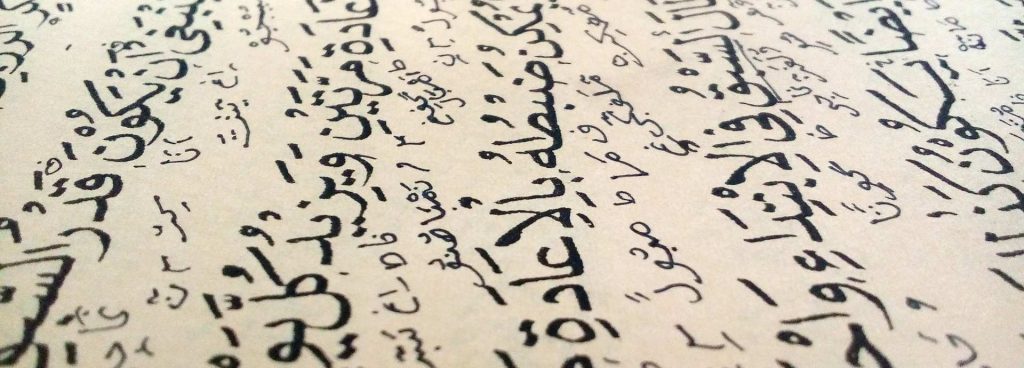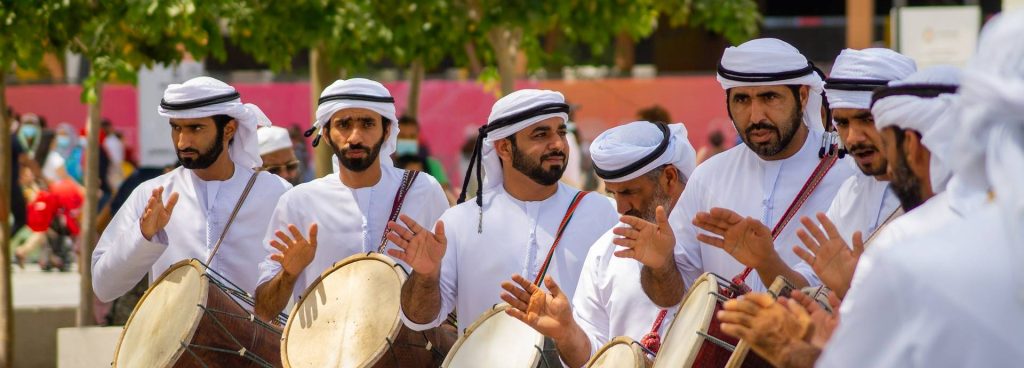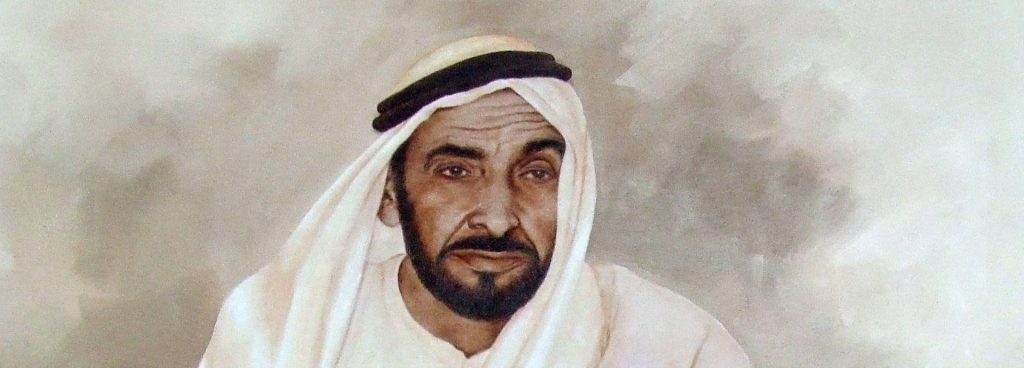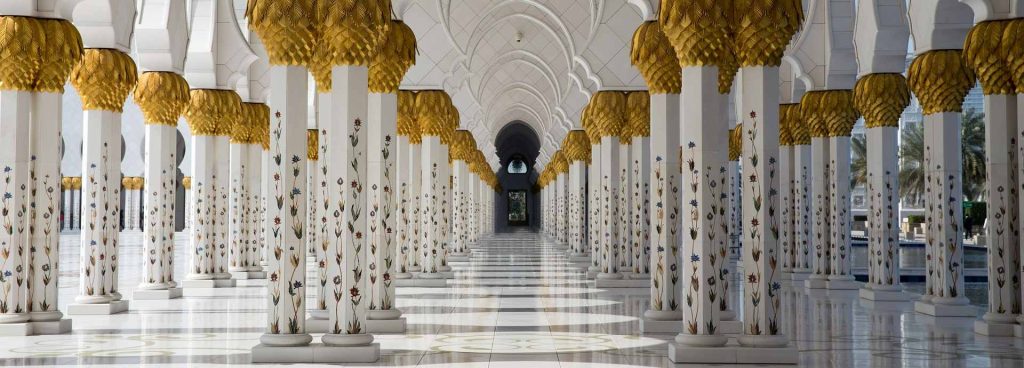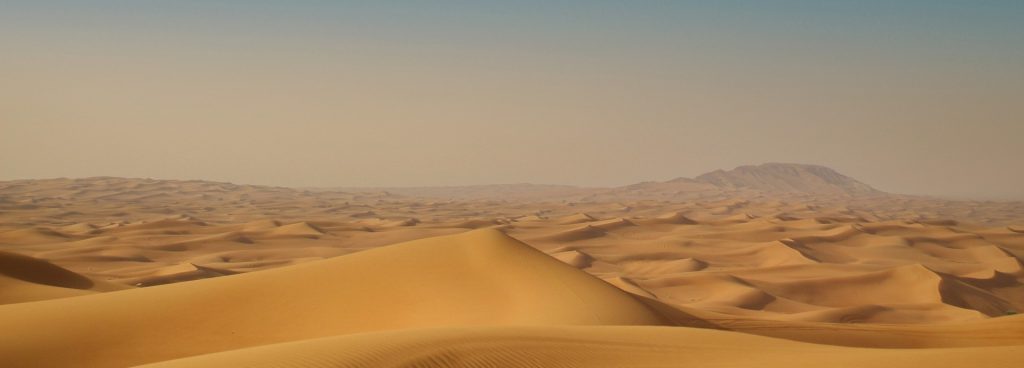A brief overview of the world religion
The term Islam
Islam literally means "surrender, acceptance, surrender, submission". Being a Muslim means surrendering oneself to the will of the supreme divine ruler. Since the will of God is laid down in laws, Islam is a religion of law. These laws not only align people with the hereafter, but they shape the whole of this world. Since God is the ruler of everything, Islam knows no separation of spiritual (religion) and worldly. The logical consequence is that Islam is the state religion in many countries. A salvation as in the Christian sense does not occur in Islam. Also, turning away from the world is not in the spirit of Islam: the ideal is not the monk, but the married man.
The history of Islam
Islam is a strictly monotheistic religion (there is no god other than Allah) and the youngest of the major world religions. It originated in the 7th century when divine revelations were conveyed to Mohammed (born around 570), a merchant from Mecca, around the age of 40, which he announced to the people after initial hesitation. Mohammed's new teaching quickly found many followers. Among them were his wife Hadija and his cousin Ali. However, since Mohammed also encountered fierce resistance, he decided in 622 to emigrate to Medina (Yatrib). The time of emigration (Hijra) represents the beginning of the Islamic calendar.
In a relatively short time, even after his death in 632, the new religion conquered huge areas of the Arabian Peninsula and had advanced through North Africa to Spain and France by the 8th century.
The teachings of Muhammad are regarded as "God's spoken word" and are written down in the Koran in 114 suras ordered by length. Other Islamic sources are the Hadith (= the words and deeds of Mohammed that have been handed down) and the Sira, the biography of the Prophet.
Mohammed's successors were the so-called "four rightly guided Khalifa": Abu Bar, Omar, Utman and Ali. However, the latter was never recognized by everyone and 661 was murdered. Before that, Mi'awiya (governor of Syria) had himself proclaimed caliph after the Battle of Siffin in 657.
Two different faiths emerged: the Sunnis (90%) and the Shiites (10%). The Shiites are of the opinion that only a blood relative of Muhammad can assume the leadership role and not, as is the case with the Sunnis, someone elected by the community.
The prayer
The Prophet Mohammed said: “Pray on your knees, standing, lying or sitting, day or night – but pray. You—children who want to follow the right path—must pray at the appointed times, and if you cannot pray, then you can postpone your prayer to another time, but never go to sleep without praising God.”
Prayer is obligatory for every Muslim. Prayers are prayed five times a day at fixed times when the muezzin (= crier) calls. The five prayers are Sobh, Dohr, Asr, Maghrib and Isha. They each consist of sit-ups and prosternations (= double prostration), which are called Rakaa. Each prayer consists of a certain number of rakaas.
It went on to say, "Before you pray, you must fulfill the following four injunctions":
1. Your body and clothes must be clean as well as the place where you have chosen to pray.
2. You must dress modestly so that your body is covered (the man must cover his body from the navel to the knees and the woman must cover the whole body except her hands and feet).
3. You must turn to Mecca, the Holy Land, where God's House Al Kaaba stands.
4. You must have purified your soul by washing the following parts of the body: face, hands up to the elbows, parts of the head and the feet.
Important in prayer is the separation of the sexes and that the ritual action must be observed. The cleaning of the body parts (= washing) takes place according to a predetermined sequence. In exceptional cases, when there is no water at hand, it is also permitted to use pebbles or sand as a substitute for washing.
The five pillars of Islam
1. The Shahada Creed
I testify: “There is no god but God. Mohammed is the messenger of God. "The Shiites often add:" Ali is the friend of God. "
2. The prayer "Salat"
5 times a day: at sunrise, midday, late afternoon, at sunset and after sunset.
3. The tax, the poor tax "Zakat"
Zakat should be given personally to someone in need by every full grown, sane Muslim.
4. In the month of Ramadan, fasting "Saum".
5. The "Hajj" pilgrimage to the Kaaba in Mecca
Every Muslim should make a pilgrimage to Mecca once in a lifetime.
The Koran
The Koran (= lecture, reading), the holy book of Islam, is the written collection of the revelations that the archangel Gabriel gave to the prophet Mohammed step by step over a period of more than 20 years. One believes in the verbal inspiration of Mohammed: that is, the Koran is literally the word of God. The Koran is (actually) considered untranslatable, since every translation results in an interpretation. The Arabic of the Koran is the norm for what is Arabic for all time.
The Koran is divided into 114 suras (chapters). The suras are arranged in order of length (except for the first sura): sura 2 is the longest sura, 114 the shortest. The first sura, the "Al Fathia" is the so-called opening sura.
A particularly high merit is to learn the Koran by heart, this is taught in the Koran schools. However, it is not a question of understanding the content, but of knowing the words by heart, for they are God's words. Every devout Muslim strives to master as many suras of the Koran by heart and to read the Koran as often as possible.
In the truest sense of the word, "visible" proof of the appreciation of the Koran is the Islamic art of writing, calligraphy. Koran verses are also often used as an amulet against the evil eye, against illness and other evils.
Ramadan
Once a year, in the holy month of Ramadan, the entire Islamic world fasts. Ramadan is the ninth month of the Islamic lunar calendar. Fasting in Ramadan is one of the five pillars of Islam and one of the main duties that a Muslim has to fulfil. The beginning of Ramadan depends on the moon and varies from year to year.
Fasting has different meanings, above all it serves to turn to Allah, it is also a way of self-cleansing, but it is also considered to be beneficial to health. The believer should also be able to sympathize with the hungry and suffering. For Muslims, however, fasting means more than just abstaining from food. From the first dawn, from the time "when you can distinguish the white thread from the black thread" (Imsak) until sunset (Iftar), eating, drinking, smoking and sexual intercourse are avoided. Anyone who is old, sick or traveling can break the fast, as can pregnant women and nursing mothers. However, the fasting days must be made up for. If this is not possible, a needy person can be fed or alms given for each missed day. During the month of fasting, public life changes drastically, the five daily prayers are observed more strictly, the Koran is read a lot, more time is spent with the family and donations are made for the needy.
"Ramadan tents" are pitched in all restaurants and hotels in the evening and there are special Ramadan specialties. After sunset, you can feast - according to all the rules of (cooking) art. At the end of Ramadan is the festival "Eid al Fitr", which has certain parallels to the Christian Christmas festival.
Foreigners staying in the Emirates during Ramadan should adhere to the following strict rules in public (including on the beaches!): Do not drink, eat or smoke during the day.
Of course you can eat and drink in the air-conditioned hotel restaurants. The designated restaurants are separated by curtains so that no fasting person gets an appetite. The service in the outdoor areas of the hotels is very limited in Ramadan. The room service, on the other hand, works perfectly.


